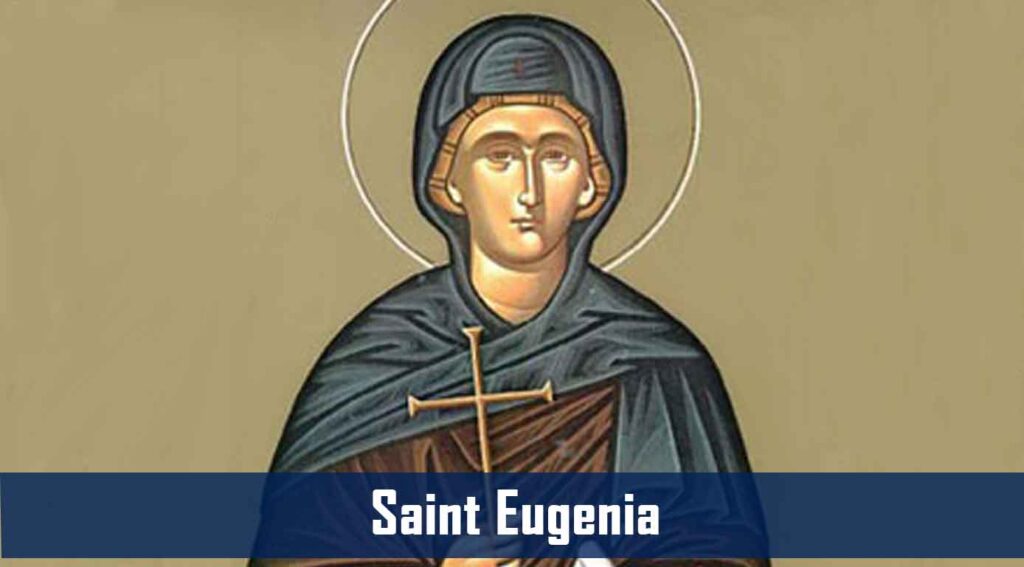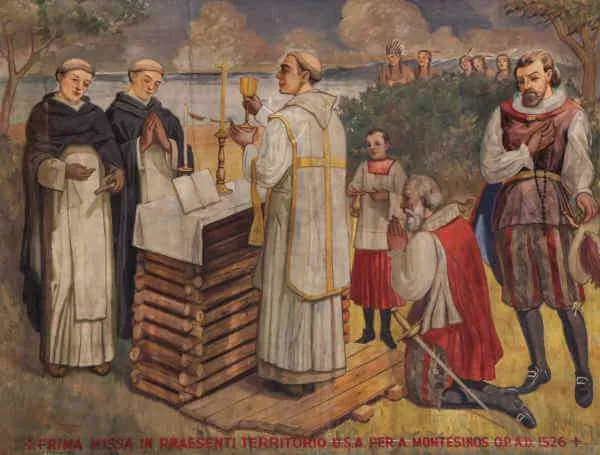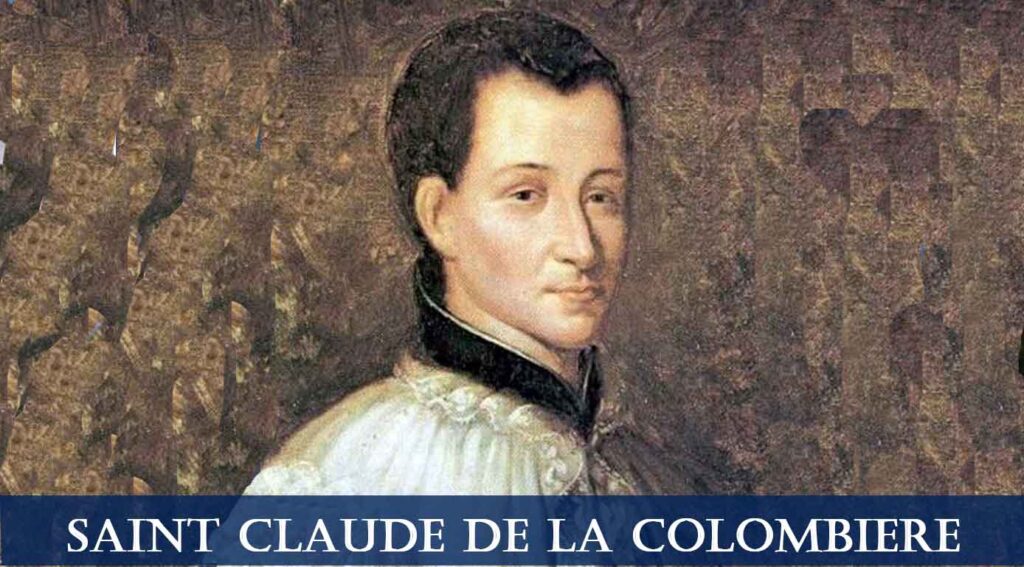Saint Eugenia, also known as Eugenia of Rome, was an early Christian Roman martyr.
Her legend states that she was converted by and martyred with Protus and Hyacinth, her Chamberlains, during the persecution of Valerian. She was said to have been the daughter of Philip, “duke” of Alexandria and governor of Egypt. She had fled her father’s house dressed in men’s clothing and was baptized by Helenus, bishop of Heliopolis. She later became an abbot, still pretending to be a man. As the story goes, while she was an abbot and still dressing like a man, she cured a woman of an illness, and when the woman made sexual advances, which she rebuffed, the woman accused her publicly of adultery. She was taken to court, where, still disguised, she faced her father as the judge. At the trial, her real female identity was revealed and she was exonerated.
Her father converted to the faith and became Bishop of Alexandria but the emperor had him executed for this. Eugenia and her remaining household moved to Rome where she converted many, especially maidens, but this did not prevent their martyrdom. Protus and Hyacinth were beheaded on September 11, 258, and Eugenia followed suit after Christ appeared to her in a dream and told her that she would die on the Feast of the Nativity. She was beheaded on December 25, 258.
Sources:
Commemoration of the Virgin Eugine, her father - Philippus, her mother Klothia and her two servants". Araratian Patriarchal Diocese of the Armenian Apostolic Church. Retrieved 4 January 2014.
Patrick J. Geary, Furta Sacra: Thefts of Relics in the Central Middle Ages (Princeton: Princeton University Press, 1990), 48.








